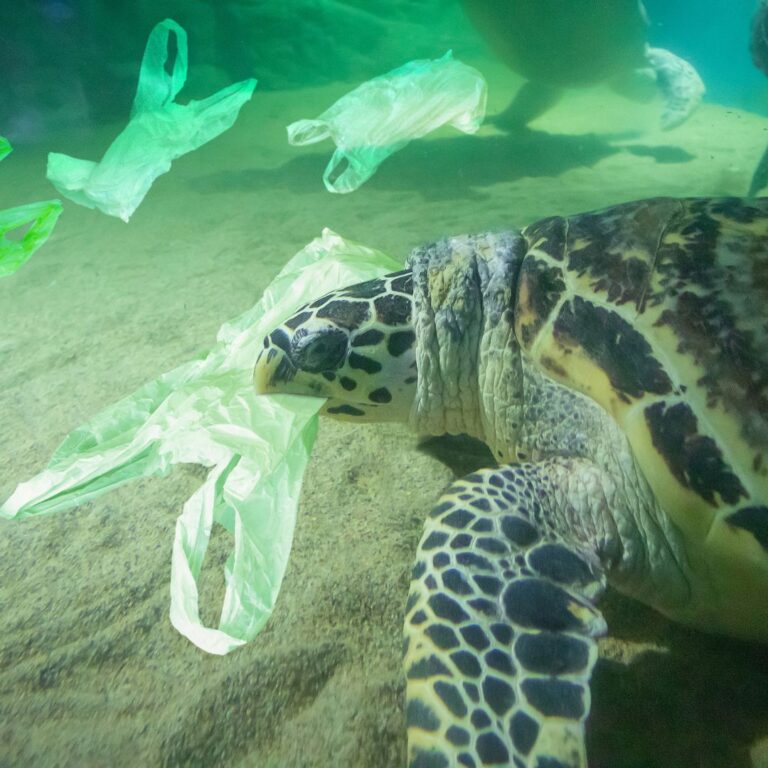The world’s oceans cover over 70% of our planet’s surface, serving as a source of sustenance, transportation, and recreation for billions of people. However, beneath their sparkling blue exteriors lies a silent crisis – ocean pollution. This insidious problem is not only harming marine life but also threatening the delicate balance of our entire ecosystem. In this article, we will delve into the causes, consequences, and potential solutions to this pressing issue.
I. Causes of Ocean Pollution:
1. Plastic Pollution:
Plastic waste, particularly single-use plastics, has become a pervasive menace to our oceans. These materials do not biodegrade and can persist for centuries, causing harm to marine life.
2. Chemical Runoff:
Pesticides, fertilizers, and industrial chemicals from agriculture and manufacturing often find their way into rivers and, ultimately, the ocean. These toxins can harm aquatic life and disrupt fragile ecosystems.
3. Oil Spills:
Accidental oil spills from shipping, offshore drilling, or transportation pose immediate threats to marine life and have long-term ecological consequences.
4. Sewage and Wastewater:
Poorly treated sewage and wastewater discharge can introduce harmful bacteria, nutrients, and pharmaceuticals into the ocean, leading to water quality degradation.
II. Consequences of Ocean Pollution:
1. Marine Life Impact:
Ocean pollution has dire consequences for marine life. Plastic debris is frequently ingested by sea creatures, leading to injury or death. Additionally, toxins in the water can disrupt the reproductive and feeding patterns of various species.
2. Coral Reef Decline:
Coral reefs, vital ecosystems, are particularly vulnerable to pollution. Chemical runoff, warming waters, and ocean acidification contribute to coral bleaching and reef degradation.
3. Economic Costs:
Ocean pollution has economic repercussions, affecting industries like fisheries and tourism. Depleted fish populations and damaged ecosystems can lead to job losses and reduced income for coastal communities.
4. Human Health:
Polluted waters can contaminate seafood with harmful toxins, putting human health at risk. Additionally, the spread of disease-causing bacteria can result from sewage pollution in recreational waters.
III. Potential Solutions:
1. Reduce Plastic Use:
Individuals can make a difference by reducing their consumption of single-use plastics. Governments and industries must also implement policies to curb plastic production and encourage recycling.
2. Sustainable Farming:
Implementing sustainable agricultural practices can reduce chemical runoff into waterways. This includes precision farming techniques and the use of organic fertilizers.
3. Stricter Regulations:
Governments should enact and enforce stringent regulations on industries responsible for pollution, such as shipping and offshore drilling. Improved monitoring and penalties for violations are essential.
4. Conservation Efforts:
Protecting and restoring marine habitats, like coral reefs and mangrove forests, can mitigate the effects of pollution. Conservation organizations play a vital role in these efforts.
Ocean pollution is a global crisis that demands immediate attention. Its far-reaching consequences affect not only marine life but also human livelihoods and health. By addressing the root causes of pollution and implementing sustainable practices, we can work toward cleaner and healthier oceans, preserving these vital ecosystems for generations to come. It is a responsibility we all share to protect our planet’s most precious resource – the ocean.

